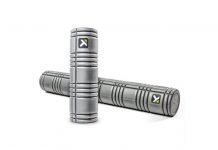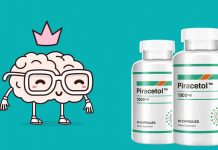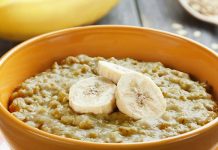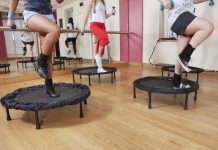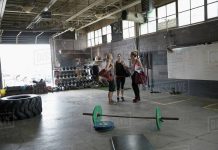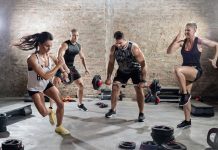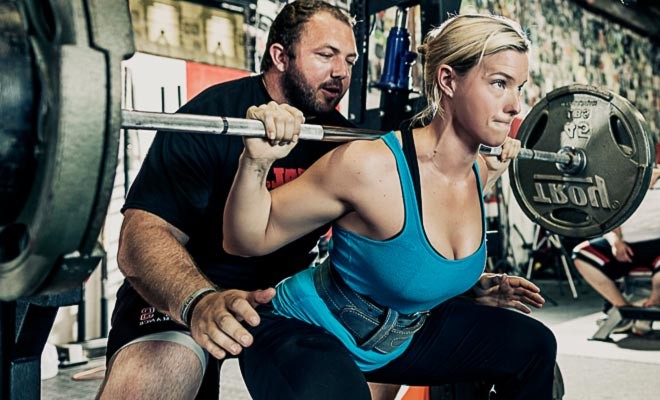
When it comes to body building and getting the body you have always dreamed of, you’ll hear lots of theories, myths and rumours. This article is going to look at the top 10 myths surrounding bodybuilding, where they have come from and what you could be doing differently.
We’ll look at a number of bodybuilding training and nutrition approaches to getting the body of your dreams and whether they’re something that you should be doing that or whether you could look at doing something differently.
Not only that but we’ve set everything out in an easy to read guide, so you can easily see what you have been doing correctly and what you might need to change. So sit back and prepare to have your mind educated in all things bodybuilding & what you should be doing to get the body you have always dreamt of.
10. Train Until You Can’t Train Anymore
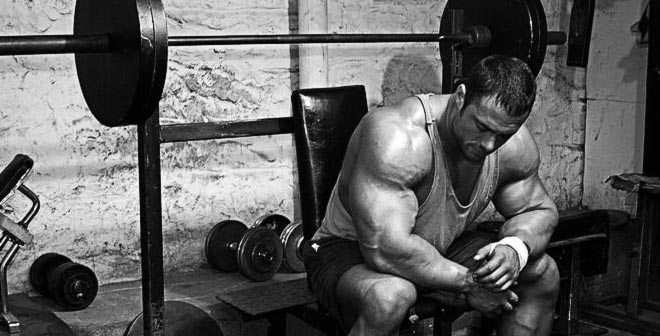 There are different sayings that encourage people to train beyond their abilities – whether that is a personal trainer screaming ‘no pain, no gain’ or a mantra that tells you the only rep that counts in your work out is the one you were unable to finish. They’re all sayings that encourage people to train, train and train again until you literally have given everything you have to give. There are training regimes that encourage you to work through the pain, carry on working out even when you feel you have given everything you can and that unless you do this, your work out will be a failure.
There are different sayings that encourage people to train beyond their abilities – whether that is a personal trainer screaming ‘no pain, no gain’ or a mantra that tells you the only rep that counts in your work out is the one you were unable to finish. They’re all sayings that encourage people to train, train and train again until you literally have given everything you have to give. There are training regimes that encourage you to work through the pain, carry on working out even when you feel you have given everything you can and that unless you do this, your work out will be a failure.
Actually research has shown that while this method can be a little effective, it is not something that you have to do again and again and continue to do. A study by Caberra based Australian Institute of Sport have looked into this in great detail. They have concluded that doing one set per exercise to failure could help, but not to go too hard if you are just training in order to become stronger. However if you are keen to stimulate muscle growth it could help to take all reps as hard as you can bear. This helps to stimulate human growth hormones in the body and we know that there are critical for muscle growth.
Basically, training hard can work but it really depends on what you are training for. It is a typical situation where people should be doing more of their own research into what works and not just assume that a blanket answer approach to it will work.
9. You Should Only Eat Certain Times of the Day
When you look into body building and the foods that you should be eating, many diet and eating guides will tell you that you should not be eating late at night. In fact many people who are looking into any healthy eating plan will tell you how scared they are of eating in the evening and that is purely down to guides telling them that they shouldn’t.
Actually the opposite is true – if you want to build muscle then you should look at eating late at night and not avoiding it. When you sleep your body goes into fasting mood, which means that it starts turning protein into fuel, if you don’t have protein in your body (i.e. you haven’t eaten) then it will start to turn muscle into fuel – which obviously you want to avoid. What you should do is look at getting a slow-digesting protein shake of some kind that you can have before you sleep at night.
There has been lots of research (including a study by the Weider Research Group) which has shown that bodybuilders having a protein shake late at night rather than during the day gained much more muscle mass over the 8 weeks that the two methods were tested.
When you look at the different rules and guidelines surrounding bodybuilding and building muscle mass, this is one of the easiest to prove that it is not real. We know that your body needs protein while it sleeps in order to build muscle. This doesn’t mean that you need to go crazy and have a large meal before you go to bed – try something like 30grams of casein shake or cottage cheese. If you’re keen to pack on loads of mass then things like oatmeal or whole-wheat bread are a good place to start.
8. Stay Away From Sugar
Whatever type of healthy eating plan you look up, you’ll mostly hear about the perils of eating sugar. We’re scared into staying away from sugar with promises that it will rot our teeth, doom us to a life of diabetes and cause us to put on weight – so surely it has no place in a bodybuilding diet? Gone are the days when we could have a sweet treat like we did when we were children, we’re told now if we want to have a healthy body we should stay away from the evil that is sugar.
Actually after a workout, having sugar is a good thing. When you have worked out hard you’ll want to help your muscles to refuel as quickly as possible. So by having some sugary foods as soon as you have finished your work out can be a really good thing.
However, as a general overview to health, sugar can cause spikes in your insulin levels, which can cause your muscle cells to store the sugar in your bloody as glycogen – which could be taken into fat cells and converted it fat. It goes without saying that this is going to have a detrimental effect on your fat burning efforts.
By making sure that you are in control of when your insulin spikes you can help to make sure that it builds more muscle rather than denting your chances of burning fat effectively.
Sugar is quite a complicated subject and one that has no real definite outcome. Most of the time you are right to try and stay away from sugar where possible, however after a workout you could most definitely benefit by having up to 100g of sugary foods/drinks. Yet another situation of there not being a steadfast rule surrounding sugar and the importance of people looking into things in more detail before applying the rule to their own bodybuilding regime.
Also read: Best unisex hair growth inhibitor Ultra Hair Away >>
7. Eating More Than 300 Grams of Protein Per Meal Is Pointless
Ever since the 80s it has been ‘well known’ that bodybuilders should not eat more than 30grams of protein per meal. We know that they do benefit from smaller meals more often throughout the day (as opposed to the traditional breakfast, lunch, dinner we all eat) but is it really true that 30grams of protein is the absolute limit?
Actually the real answer is much more complicated than this – mainly because bodies are different and all digest differently. There are factors that can affect how much protein your body will benefit from at any one time – for example how much protein you have had previously, how many calories are in the meal, how much carbohydrates and fat you are eating and how much you have been working out/need to repair your muscles. Actually studies have shown that around 50g of protein is a much more realistic number to aim for.
Of course there is a limit to how much protein and creatine your body can digest, which is why smaller meals throughout the day is much more effective. That said 30g is a very low amount. Instead you should be looking at around 35g to 52g of protein per meal – you’ll see much better results with this method.

6. You Should Lose Fat and Gain Muscle Separately and Not at the Same Time
To gain muscle you need to eat more calories than normal and to lose fat you need to eat less calories that normal – so it stands to reason that you’ll need to do different phases if your plan is to both. This way of thinking has led to the body building market being filled with a whole host of bulking & cutting phase cycles, which many people swear by.
Like many things surrounding body building it really isn’t as simple as that. It is possible to gain muscle when your calorie intake is low, although you’ll probably have to work at it. If you carbohydrate intake throughout the day is low, but you make sure that you are eating plenty of protein then research shows that it is possible for you to gain muscle. Try to stick to eating protein as soon as you wake up, before you work out, after you work out and then just before bed if you want to have the best possible chance of seeing results. It doesn’t hurt to add food supplements to your diet to help encourage muscle growth.
So, don’t listen to the many people that will tell you that you can’t gain muscle and burn fat at the same time – because you can! Much like any aspect of gaining muscle and bodybuilding you’ll need to work at it, but the chances are whatever method you choose that will be the case anyway!
5. Weight Training Should Come Before Cardio
If you talk to people in your gum, you’ll find that that most bodybuilders do their cardio work outs after they have done their weights. Most of them won’t have a reason for doing this – simply a personal preference on the way they work out.
Thankfully Japanese research has shown that this is the best way to work both types of exercise into your workout regime, so even if people are only doing it because that’s what they prefer to do – it is the right decision! When you work out with weights you’ll find that growth hormones in your body are higher – this encourages muscle growth but it also means that fat can be removed from fat cells and burned away much more easily – a win, win situation.
4. Dietary Fat is Bad
Bodybuilding diets concentrate on lean protein diets (i.e. egg whites, chicken breast, turkey and even fat-free dairy products) and tell people to stay away from products that contain any fat.
Actually there are different types of fat – so you need to look into these individually rather than taking the stance that all fat is bad. Instead you should avoid transfat, because this is man-made fat and is bad for you.
Saturated fat is actually a fat that you should be looking at everyday – in fact it should make up 10% of your daily calories – meats such as beef are a good way of meeting your daily saturated fat guidelines. Unless you want to have lower testosterone levels (like many athletes) you should try and get 30% of your total calories from fat. This should be largely made up of monounsaturated fats (olive oil, avocadoes, nuts) and omega-3 fats (salmon, trout) which are both considered to be good fats and essential for a healthy, balanced diet.
3. Don’t Train if You Are Already Sore
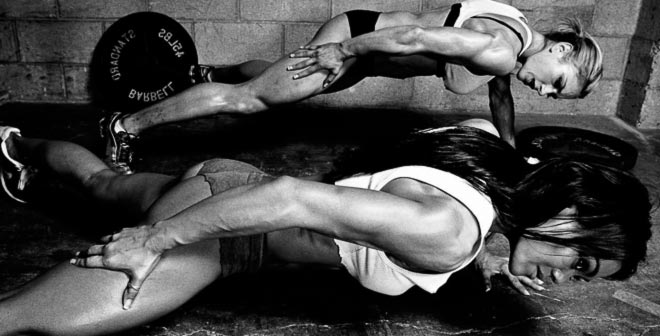
If you have ever worked out then you will be aware of the dreaded DOMS (delayed onset muscle soreness) which is the pain you feel around 24 hours after you have done an intense workout. As it hurts to even more it seems logical that you would not work out while you felt this bad, in fact it is almost seen as so normal not to work out like this that people don’t even mention having a rest day now, it is just taken as red that is what they will do.
DOMS is actually a good sign – it shows that your muscles are involved in a recovery and growth session, which is great news for people who are wanting to gain muscle mass. There has been a number of different studies into DOMS and whether or not you should be ‘working through it’ to carry on your work out. One study showed that when people worked out while sore (even 2 days later) their cortisol levels were lower – which means that were in an anabolic state. Japanese research also showed that induced soreness in the biceps muscles of subjects with heavy negative rep curls, and repeated the exercise some days later.
What this means is that you are far better waiting at least 48 hours before you work out the same muscles, even if you are not experiencing DOMS. You need to give your body time to recover from a work out and it cannot do this if you continue to work it hard.
2. Don’t Train Without Stretching First
Almost since the beginning of time people have taken to stretching out their body before they attempt any type of exercise. In fact for many people it is such a given that you need to do this, that it is hardly worth mentioning. However, over recent years the benefit of this has been largely debated – and you might be surprised at the results.
Firstly you might be surprised to learn that stretching before exercise has no affect on your risk of injury while you work out. What you might also be shocked to hear is that actually when athletes do static stretching (reaching and holding) before they work out, their strength will decrease – so in theory their work out could be less effective. It also shows that if you want to be more flexible you should stretch after you have worked out – and not before!
When you look at this it could be easy to assume that the advice we have been given in the past is nonsense and that we should never stretch before we work out – but that is not the case at all. What studies have down is that dynamic stretching (fast movements, high kicks etc) before weight training can increase your power and strength throughout the workout they do.
So before your work out stretch quickly, after your work out stretch and hold them each for around 30 seconds – you’ll see much better results this well.
1. Train Heavy For Results
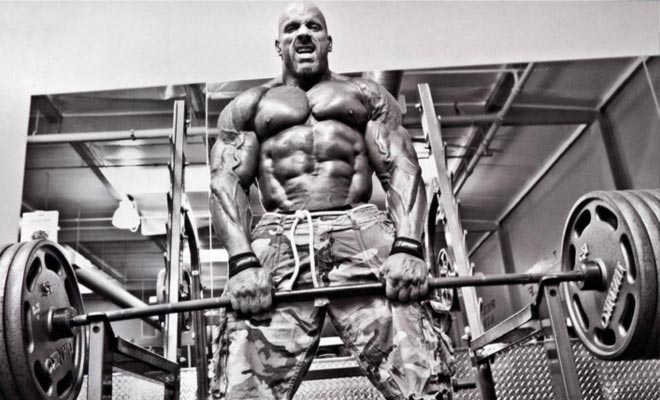
If you visit a bodybuilding gym you’ll often see posters telling you to ‘man up’ or train hard in order to see results. Many people believe that unless you are working yourself incredibly hard you simply won’t see the results you have been hoping for. Of course heavy training is something that is relative – what is heavy and hard work for you could be impossible for someone else, or too easy for another. It is a matter of you looking at your own abilities and what is considered heavy for you.
The actual answer is (once again) that it depends on what you are bodybuilding for. Research shows it if you are looking to build up your strength then you should look at reps in the range of one to seven – but this won’t be as effective if you are looking to work out for muscle growth. With so little reps you simply won’t stimulate your muscles enough to stimulate adequate metabolic changes in the muscle for growth. Instead you need to up it a little and look at reps in the eight to twelve range, because this will be much more affective when it comes to encouraging muscle growth and bulking up.
As ever, it is about looking at the type of work out you are doing and the results you want to see and adjusting your work out to suit that. Generally you’ll see the best results if you vary the amount of reps that you do – so that your body is always working.
Read our full review about one of the best pre-workout supplements: 4 Gauge >>


